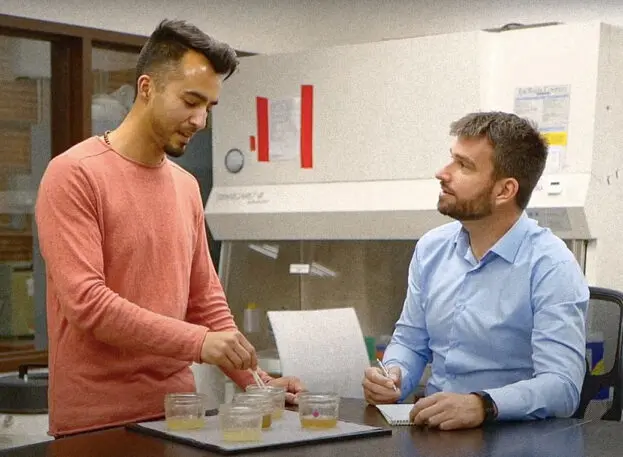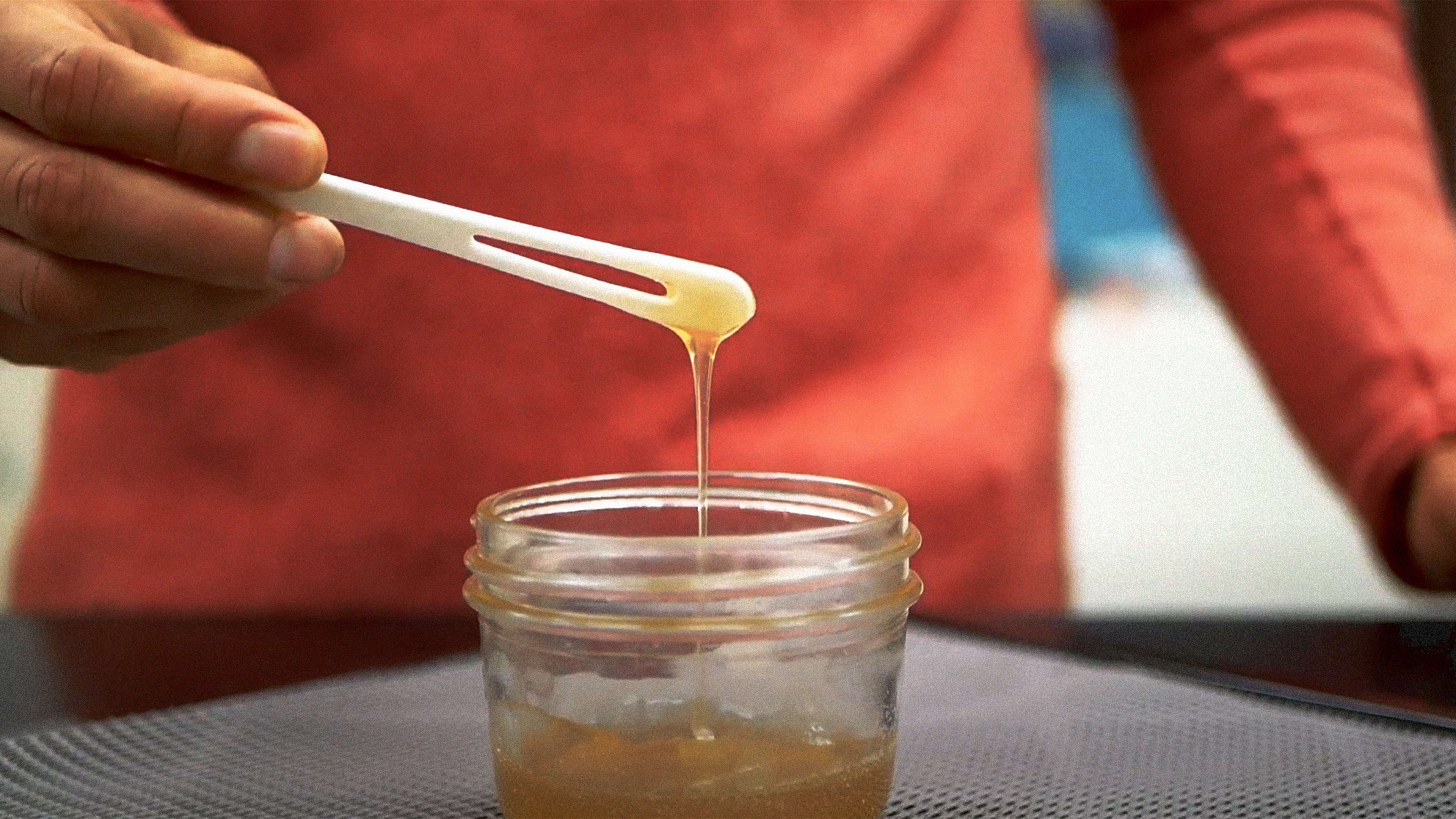As startups make milk proteins without cows and palm oil without palm trees, researchers at a lab in the San Francisco Bay Area are working on one of the next challenges: how to make honey that’s identical to the traditional product but doesn’t require the work of any honeybees.
MeliBio’s founders wanted to address one of the issues caused by honey production—the impact that honeybees have on biodiversity. “There are 20,000 other bee species that are wild and native species,” says Darko Mandich, CEO of the Berkeley, California-based startup. “And those species are jeopardized with current honey production, which completely relies on commercial beekeeping.” While the plight of honeybees and colony collapse has gotten more attention, native bees are more at risk, in part because honeybees compete for their food. The more honey production increases, the more the pressure grows. That’s on top of the challenges that wild bees are already facing from pesticides, climate change, and loss of habitat. Hundreds of native bee species in the U.S. now risk extinction.

While the company is still at an early stage, it recently created a prototype that “resembles the taste, the texture, and the viscosity of bee-made honey,” Mandich says. In a blind taste test, he says, tasters found it indistinguishable from the traditional product; 14 companies have signed letters of intent to begin purchasing it to use as an ingredient.
The startup plans to focus on sales to other businesses—from food companies to those that use honey in soap or shampoo—with an initial product coming to market next year. It will soon raise a seed round of investment to expand its R&D team, working on reaching a production cost that is significantly less than honey from bees.
On its own, the product can’t solve the issues facing wild bees; the same bees used to produce honey are also used to pollinate crops. For better or worse, though, other companies are also working on artificial pollination technology. In the meantime, bee-free honey may succeed in the quickly growing market for vegan food, which is expected to grow to $31 billion by 2026.
Recognize your brand’s excellence by applying to this year’s Brands That Matter Awards before the early-rate deadline, May 3.
